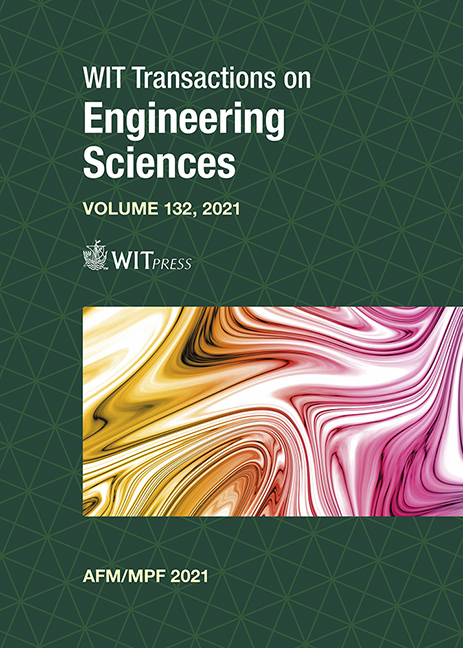SQUARE CYLINDER UNDER DIFFERENT TURBULENT INTENSITY CONDITIONS BY MEANS OF SMALL-SCALE TURBULENCE
Price
Free (open access)
Transaction
Volume
132
Pages
12
Page Range
103 - 114
Published
2021
Paper DOI
10.2495/MPF210091
Copyright
Author(s)
ANTONIO J. ÁLVAREZ, FÉLIX NIETO, KENNY C. S. KWOK, SANTIAGO HERNÁNDEZ
Abstract
The phenomenon of turbulence is present in almost every type of flow in practical applications. Depending on its level of intensity and length scale, it can modify both the aerodynamic and aeroelastic performance of a body under flow action. In wind tunnel tests, the desired turbulence level is achieved by placing obstacles, spires, grids and extra roughness generators upwind the tested model. On the other hand, when trying to reproduce turbulence effects by means of a computational fluid dynamics (CFD) approach, two options have usually been considered: synthetic turbulence generation and the reproduction of velocity and pressure fluctuations recorded from previous simulations or wind tunnel tests. Another option, whose feasibility in CFD applications is addressed in this work by means of a 2D URANS (unsteady Reynolds averaged Navier–Stokes) consists of placing a rod upstream of the studied body, near the stagnation line. This approach is based on the generation of small scale turbulence upstream of the studied body, so that the turbulent wake generated by an upwind rod impinges on the body located downwind. In the present study, by means of 2D URANS simulations, the smooth flow over a circular cylinder (the upwind rod) is studied focusing on its wake turbulence characteristics. Furthermore, the aerodynamic performance of a square cylinder, first under smooth flow, and later immersed in the turbulent wake of the upstream rod, are analysed. A substantial effort has been devoted in the verification studies of the numerical models. It has been found that the adopted numerical approach is able to reproduce the turbulent characteristics of the rod wake and assess the impact of the turbulent flow on a square cylinder, providing a promising agreement with experimental data.
Keywords





